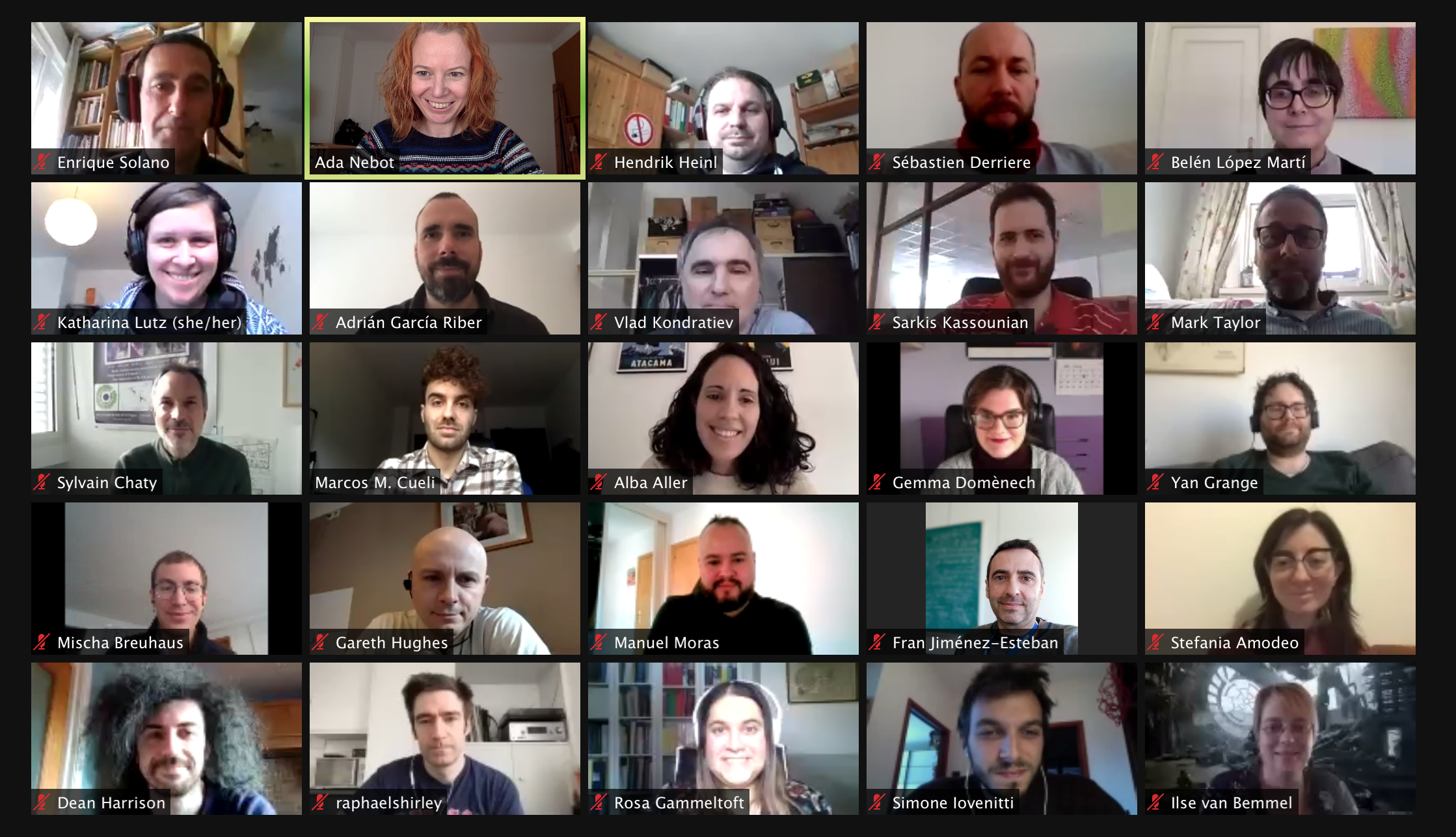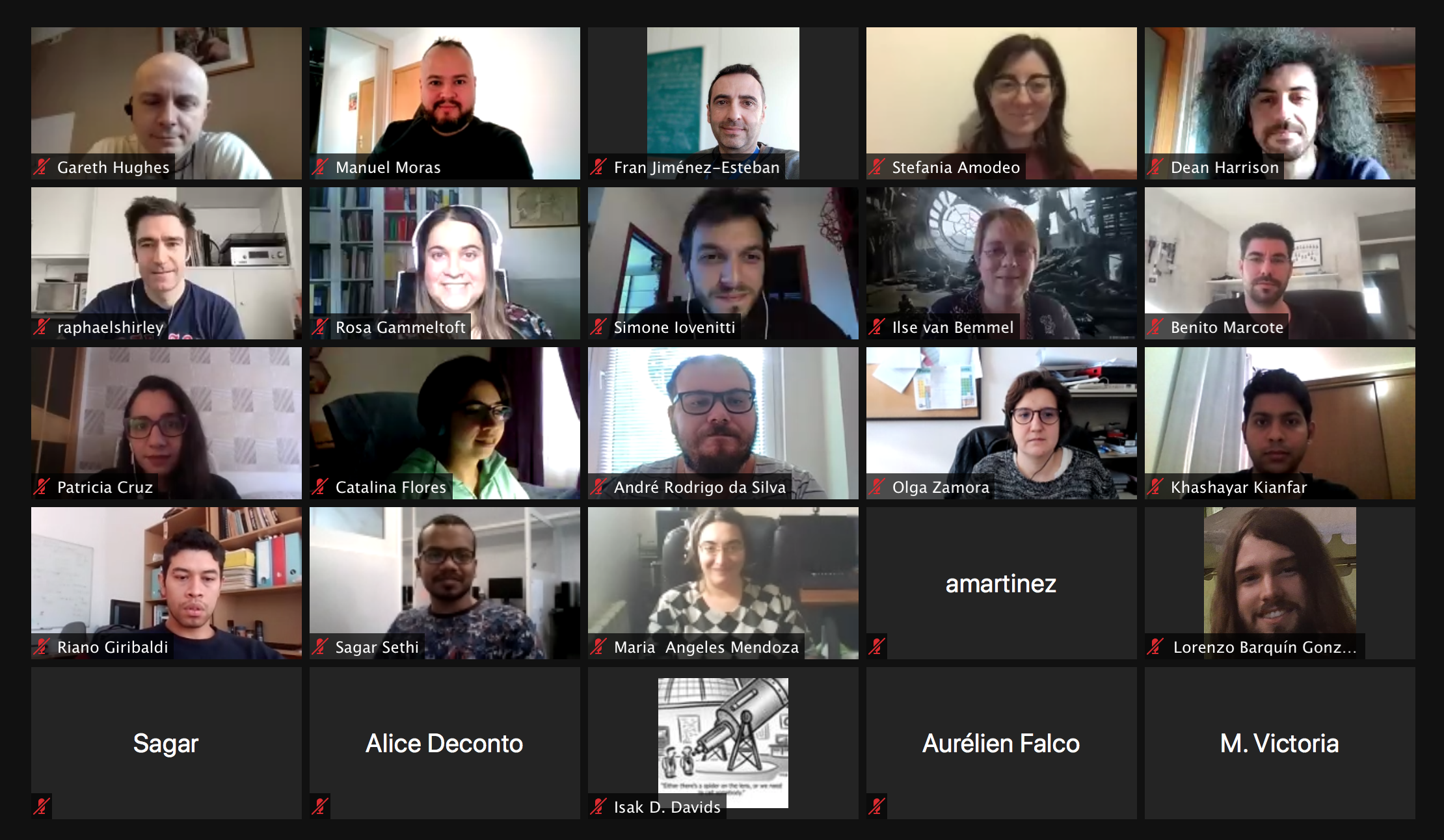Introduction
Work Package 4 of ESCAPE, “Connecting ESFRI projects to EOSC through VO framework” (CEVO), plans to make the seamless connection of ESFRI and other astronomy and astroparticle research infrastructures to the European Open Science Cloud (EOSC) through the Virtual Observatory framework.
The high-level objectives of CEVO are to:
- Assess and implement the connection of the ESFRI and other astronomy Research Infrastructures to the EOSC through the Virtual Observatory framework.
- Refine and further pursue implementation of FAIR principles for astronomy data via the use and development of common standards for interoperability including the extension of the VO to new communities.
- Establish data stewardship practices for adding value to the scientific content of ESFRI data archives.
A key aspect in order to secure the accomplishment of the CEVO objetives is the training of the European astronomical community, in particular early career scientists. The European Virtual Observatory (VO) initiative began to organise regular VO schools during the Euro-VO Astronomical Infrastructure for Data Access FP7 project (EuroVO-AIDA, 2008-2010). The usefulness of these schools was immediately obvious, and they were continued in the framework of the projects EuroVO-ICE (2010-2012), CoSADIE (2012-2015) and ASTERICS (2015-2019).
The First ESCAPE Science with interoperable data school will take place on 8-12,19 February 2021. The school is opened to all European countries, including non-partner countries and it is mainly focused on young people at PhD or postdoctoral level. ESCAPE ESFRI partners are invited to send participants to learn about the scientific usage of the VO. The school will serve as template for the partners to organise similar activities towards their communities.
Goal of the School
The Virtual Observatory (VO) is opening new ways of exploiting the huge amount of data provided by the ever-growing number of ground-based and space facilities, as well as by computer simulations. The goal of the school is twofold:
- Expose participants to the variety of VO tools and services available today so that they can use them efficiently for their own research.
- Gather requirements and feedback from participants.
To achieve these goals, VO experts will lecture and tutor the participants on the usage of VO tools and services. Real life examples of scientific applications will be given. A large fraction of the time will be dedicated to hands-on exercises, which will allow participants to become fully familiar with the VO capabilities on their own laptops. Participants will also have the opportunity to develop their own science cases under the tutors' guidance.
Venue
Online via zoom and Slack. Instructions on how to install and use zoom and Slack can be found
here.
Programme
The programme can be found
here.
The registration form can be accessed
here. No registration fee is required.
Certificates: The certificates will be given ONLY to those participants who have attended to at least 80% of the course.
Organisation
(in alphabetical order)
INTA: Miriam Cortés-Conteras, Enrique Solano
CDS: Mark Allen, Hendrik Heinl, Katharina Lutz, Ada Nebot
Contact
Follow-up
- April 2021: Sagar Sethi(Astronomical Observatory of the Jagiellonian University, Krakow, Poland) will give a presentation to PhD students entitled "How virtual observatory (VO) tools make life easier to astronomers?"






